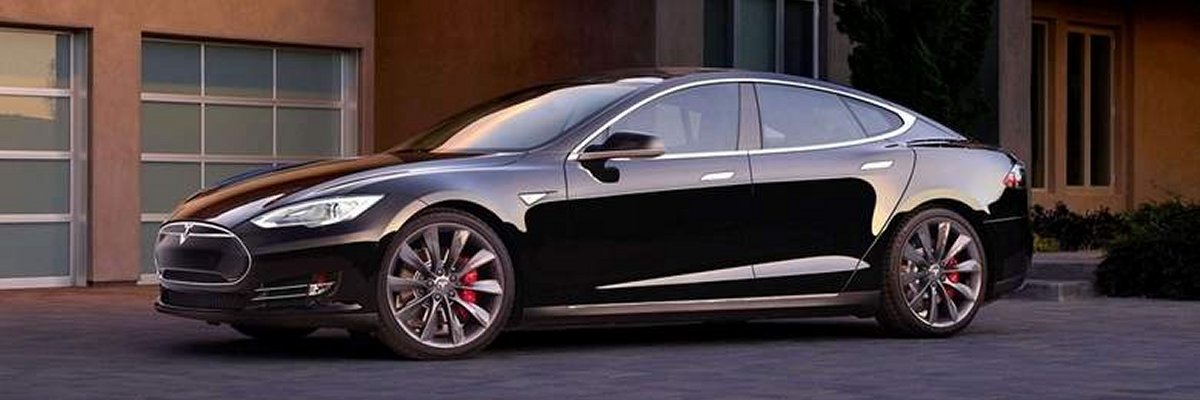News : United Arab Emirates
Electric cars in UAE: A sparking idea or a dud?
2017-08-06

It's only been five months since Tesla decided to launch their electric cars in the UAE.
Tesla opened its first-ever showroom in the Middle East with much fanfare, in cosmopolitan Dubai, as the UAE has quickly turned into one of the biggest prospective markets for the Californian electric car-manufacturer.
With the electric car market booming exponentially in such a short time, it's only natural that potential consumers are pondering the pros and cons of investing in an electric vehicle (EV).
Here's a quick guide to help you make an informed decision:
PROS
Recharging Convenience:
Perhaps the biggest appeal of electric vehicles is their convenient recharging capability. No more waiting in queues at a fuel station! Once you invest in a home charger, all you need do is pull into your garage or driveway, plug in your car and voila, you are done! Wake up the next morning to a fully recharged vehicle ready to drive for more than 130 kilometres, depending on the model.
When it comes to public charging, the good news is that Dubai Electric and Water Authority (DEWA) has installed nearly 200 charging stations across the Emirates, some in key shopping malls like the Dubai Mall and The Beach in JBR. At some of these stations, full charging takes only 20-40 minutes.
Low-cost Operation:
The rate for public charging is 29 fils per KWh according to DEWA's CEO, Saeed Al Tayer. Even in an oil-rich country like the UAE, electric cars still deliver "competitive" mileage (0.18 per km) compared to traditional fuel-dependent cars (0.15 per km). Considering DSOA (Dubai Silicon Oasis Authority) free charging stations the numbers for EV are even more favourable. Their maintenance costs are exceptionally low.
Smooth and Noiseless Ride:
Traditional cars may seem noisy in comparison with electric cars which barely make a sound. Considering that these cars are surprisingly quick as well, that may come as a surprise. With electric vehicles power is delivered immediately to the wheels resulting in an exhilarating ride
No Carbon Emissions:
Generation of electricity to run the electric car will, of course, produce some emissions but given that the UAE is gas-dependent, electricity generation at grid level is more efficient and eco-friendly than independent car burn.
As the government invests in more green energy sources, electric cars will automatically become even more sustainable
CONS
Long Refuelling Time:
For an average electric car, an hour of charging from a 240-volt source of electricity yields 30-40 km of runtime. If the user remembers to plug in the car every night before going to sleep, that fact won't put a damper on their daily plans.
What's more, public DC quick chargers capable of adding around 80kms of range with 20-25 minutes of charging are increasingly becoming available so this con will diminish over time
Limited Range:
Given that a fully charged electric car typically runs around 130-160 kilometers, users sometimes experience what has been termed 'Range Anxiety'.
Long trips are likely more difficult in an electric vehicle (EV) given the limited number of recharging stations in the UAE, however with advance planning a challenge that can be managed.
Lack of Choices:
Sadly, there are not that many electric vehicles in the market to choose from. Several auto manufacturers have set up aggressive production goals now to introduce electric cars at scale (e.g., Volvo announced mass scale EVs by 2019).
Higher Upfront Cost:
Currently, most electric cars are priced in the range of $30k-$40k meaning they are considerably higher in cost compared to gas-powered vehicles in similar categories. The flagship Tesla model S (sedan) has a starting cost of Dh275,000 for the basic trim. However, the latest Tesla 3 model, which will be available later this year, starts at Dh128,000.
Given the many advantages of electric cars over traditional fuel-dependent vehicles, one can expect to see a lot more of them running around the roads of the UAE in the coming years.
(Source: carswitch.com)
 Ily Es
Ily Es
Translator
- Your comment
Select Language/Country
© 2016 Naciha.com
